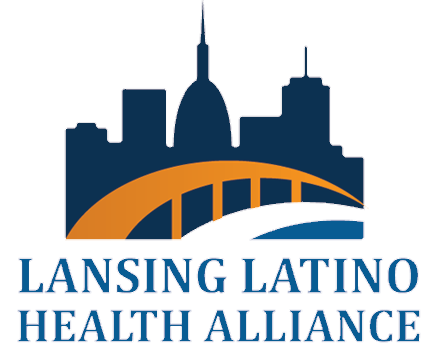

The founding of the Lansing Latino Health Alliance (LLHA) emerges from a timely confluence of local and national events. In the second half of the last century, Latino Studies is recognized as a critical, exciting field of study in many disciplines. It acquired its niche in the research agenda of sociologists, anthropologists, economists, and literary and artistic scholars.
Julian Samora, the first Mexican American to earn a doctorate in sociology, played a pioneering role in Latino studies and was honored in 1989 when Michigan State University established the Julian Samora Research Institute (JSRI) as “the premier Latino research institute in the Midwest with a history of research on Latino communities” (JSRI webpage).
LLHA Mission
Naming a Board of Directors for the new organization brought together an enthusiastic group of community members willing to come together for a common purpose (members of the first Board are listed at the end of this article). e new Board convened several focus groups in the community, the findings of which helped to establish a primary agenda for LLHA:
(a) the absence of bilingual health services;
(b) obesity as a major health issue;
(c) the lack of culturally competent medical staff; and
(d) access to healthcare services and insurance. LLHA’s advocacy mission is agenda-shaped to make the case against disparities in access and for equal professional care. The mission of LLHA is “To improve the health status of Latinos in the greater Lansing area by advocating for meaningful, effective, and sustainable policy and systems changes.”
e JSRI had an indirect part in founding the Lansing Latino Health Alliance. In 2001, Michigan State University appointed the scholar Dr. Israel Cuéllar as Professor in the Department of Psychology and assigned him to Director of the JSRI. His rich scholarly contributions to mental health treatment, developing the Acculturation Scale for Mexican Americans (ARSMA), and providing appropriate mental health services to diverse populations quickly qualified him as a leader in Latino studies and merited the appointment to a research institute.
Dr. Cuéllar was the imminent force in the founding of LLHA in 2003.
Thus, the elements of a perfect condition converged: Latino studies, the establishment of JSRI, and the appointment of Director Dr. Israel Cuéllar, whose focus of study and application. Israel Cuéllar, the enthusiastic acceptance and support of the Latino leadership of Lansing, conceived and created the Lansing Latino Health Alliance in 2003. Dr. Cuéllar obtained initial financial support for LLHA from the Ingham County Health Department and the Kellogg Community Voices Project.
LLHA Mission
Naming a Board of Directors for the new organization brought together an enthusiastic group of community members willing to come together for a common purpose (members of the first Board are listed at the end of this article). e new Board convened several focus groups in the community, the findings of which helped to establish a primary agenda for LLHA:
(a) the absence of bilingual health services;
(b) obesity as a major health issue;
(c) the lack of culturally competent medical staff; and
(d) access to healthcare services and insurance. LLHA’s advocacy mission is agenda-shaped to make the case against disparities in access and for equal professional care. The mission of LLHA is “To improve the health status of Latinos in the greater Lansing area by advocating for meaningful, effective, and sustainable policy and systems changes.”